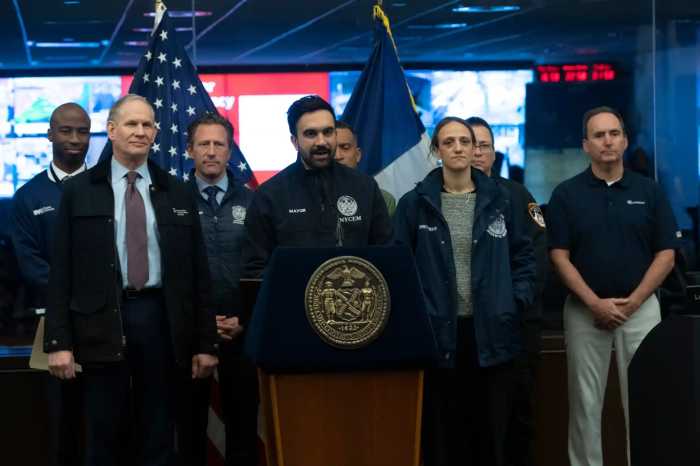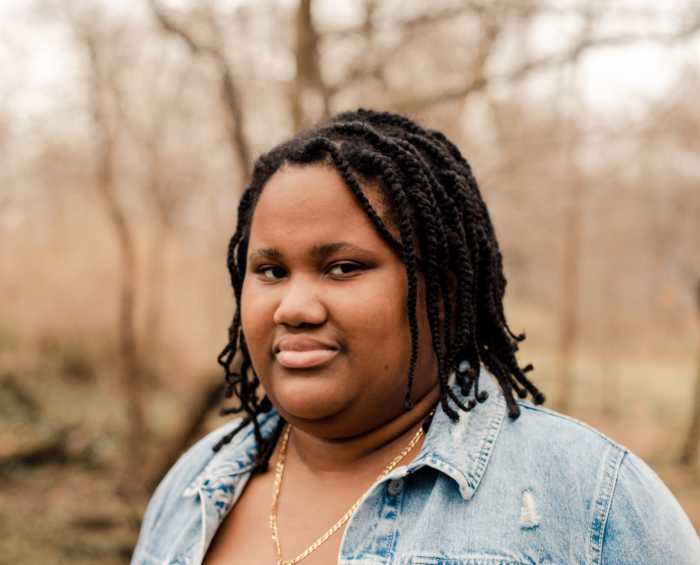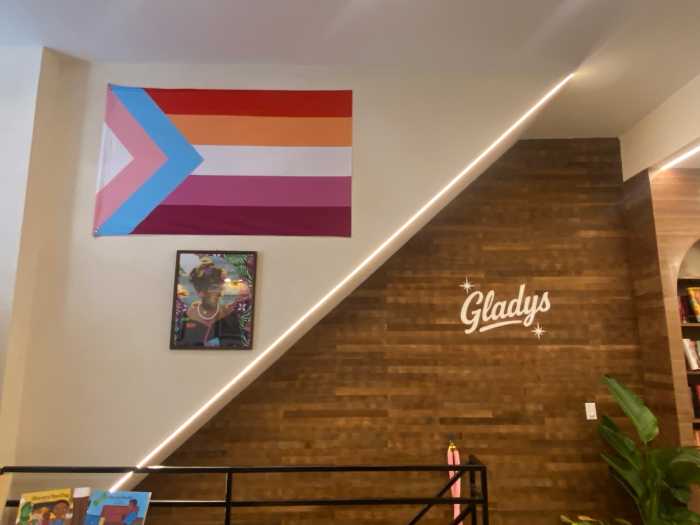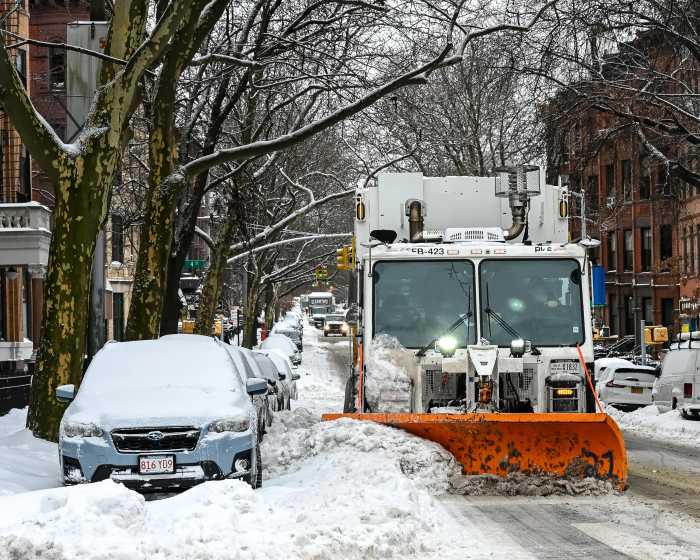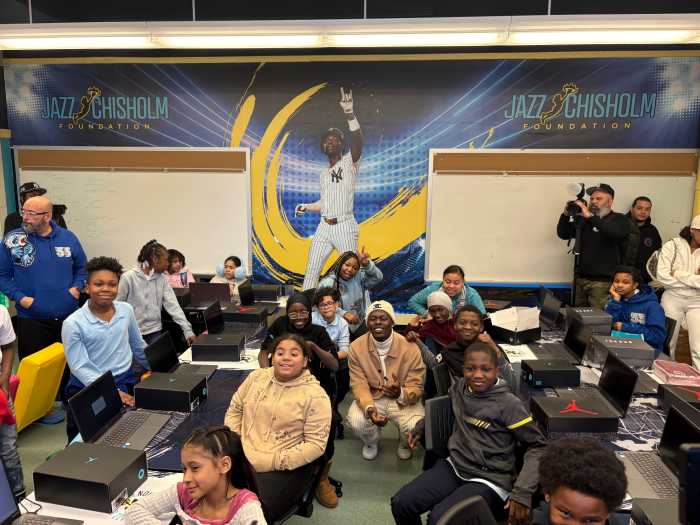After 26 years, Bluestockings Cooperative, New York’s radical queer bookstore, has closed its doors. More than just a bookstore, Bluestockings was a true third space for the city’s queer community. Nestled in the Lower East Side, this hub was a sanctuary for activists, marginalized communities, and anyone seeking literature on anti-fascist politics, feminism, and social liberation. When the cooperative announced its permanent closure in September, what should have been a somber farewell quickly devolved into a public dispute that has left the community asking: What really happened at Bluestockings?
A legacy built on radical principles
Founded by Kathryn Welsh in 1999, Bluestockings originally operated as a feminist bookstore. Welsh’s vision was simple: create a space where feminist literature and thought could be front and center. That was easier said than done. Four years later, she sold the store to Brooke Lehman and Hitomi Matarese. The duo had broader dreams for the shop, first expanding its offerings to include queer and race literature, but also to transform the space into worker-owned cooperative and activist center. The store evolved into a gathering place for community events, protests, planning sessions, and educational workshops.
Financial struggles and survival efforts
Like many independent bookstores, Bluestockings faced mounting financial pressures over the years. Yet, up until now, they met each of those challenges with strong community support. An IndieGogo campaign in 2015 helped raise funds in the face of a gentrifying Lower East Side. Despite those efforts, the store relocated in 2020, from Allen Street to the current location on Suffolk Street.
The following year, Bluestockings restructured as a worker-owner cooperative, with the intention of giving employees greater autonomy and decision-making power in the shop’s business affairs. In 2023, the store faced an eviction attempt from its landlord for distributing Narcan kits (lifesaving medication for opioid overdoses) and fentanyl test strips (which help test recreational drugs for traces of fentanyl), with the landlord claiming the bookstore was operating unlawfully as a medical facility.
Earlier this year, Bluestockings launched another fundraising campaign, this time on GoFundMe, which had raised over $65,000 before the closure announcement. Despite these collective efforts, the cooperative faced daunting financial realities: $12,000 in monthly rent and a staggering $100,000 debt to book distributors. According to staff members, the store hadn’t purchased new books since October 2024, relying instead on book drives and donations to keep their shelves stocked.
Closing & Controversy
So, it perhaps shouldn’t have come as a surprise when, on Monday, Sept. 22, Bluestockings announced its closure via Instagram and its website, citing mounting financial debts and “the struggle against the organized abandonment of New York City.” The statement also referenced “shared failures of multiple cohorts to come to consensus around guiding principles and practices” for moving forward as a cooperative.
But the narrative shifted dramatically by Tuesday evening. In a now-deleted Instagram post from “exclusively Brown POC stewards wrongfully fired from BStox,” several now-fired employees claimed they had been locked out of the community hub by “the crackers who fired us.” The post announced a Thursday press conference where these staff members would share their side of the story.
As approximately 30 Bluestockings supporters gathered in the rain for the press conference on Sept. 25, the two workers behind the post, Jay and Dheivanai (who’ve asked to only be identified by their first names), asserted they’d been unjustly terminated without severance.
“The white folks on the lease who are former worker owners made this decision without consulting any of us,” they wrote in an Instagram comment, referring to co-owners Merlin Sabal, 31, and Raquel Espasande, 28. She characterized the abrupt closure as a violent act which has left them locked out of the physical establishment unable to retrieve personal items. Jay and Dheivanai also stated that Sabal and Espasande have been absent from the shop for the majority of 2025, making the abrupt decision to close all the more shocking.
Cooperative in crisis
The fired staffers claimed they’d been left in the dark about the dire state of the store’s finances and learned about the closure simultaneously with the public. According to them, they had been working tirelessly to keep the store afloat — negotiating payment plans with distributors, working with the Cooperative Economics Alliance of New York City on leadership training, and even taking pay cuts. They were under the impression that the store’s finances were improving — however gradually — after an earlier slump. Additionally, the group had begun drafting plans to restore and save the store’s queer archive.
The sudden closing and resulting conflict raise fundamental questions about what it means to operate as a true cooperative. If workers lack access to financial information and aren’t included in existential decisions about the business’s future, can it truly call itself a worker-owned cooperative? Or has it become something more corporate in practice?
An Uncertain Future
Almost a month later, whether Bluestockings can be saved or whether its 26-year run has truly ended still remains to be seen. For a bookstore that has championed radical politics and community solidarity, the messy reality of its closure serves as a painful reminder that even our most cherished queer institutions are not immune to the very conflicts they seek to address.
As for the terminated staffers, they hold to their belief that alternatives to closure exist and have invited the legal owners to engage in transparent dialogue to work toward an inclusive solution. As Gay City News went to press, the two parties have not had any further communications.
Anyone looking for safer sex supplies, to exchange syringes anonymously, get medical or mental healthcare, and/or Narcan/fentanyl test strips support in lieu of Bluestockings’ closing can reach out to the Alliance LES Harm Reduction Center (35 East Broadway).


